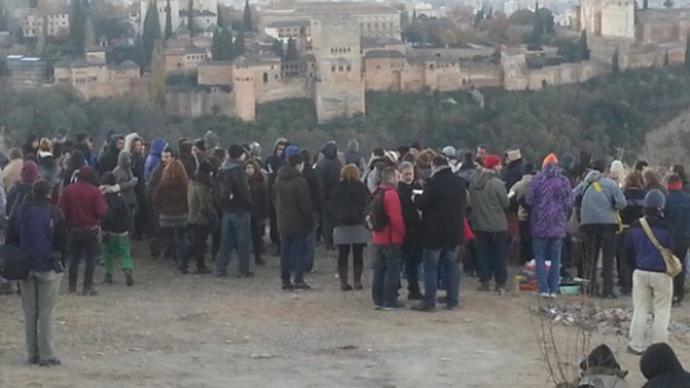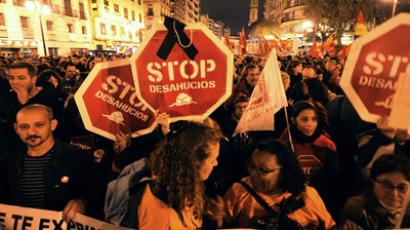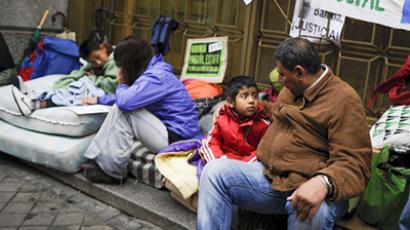Spanish cave dwellers revolt as city council about to start ancient caves eviction
Protesters in Granada, Spain have gathered to protect cave dwellings as authorities move to clean and evict dozens from the ancient settlement. The City Council cites a lack of safety, but the cave dwellers accuse it of violating their human rights.
This week dozens of activists have been protesting the eviction from the San Miguel caves of at least three dozen people who live there.
On Thursday, the Granada City Council proposed providing social housing to those residents currently in the caves.
The Town planning councilor, Isabel Nieto, announced that the council had applied to the courts to carry out these measures.
This is the third attempt to clear cave dwellings in the past six years. Officials have repeatedly claimed that the homes built there run the risk of damage.
Juan Antonio Parra, one of the individuals representing the cave's community, rejects the city's claims, and tells RT that despite a declaration by the city three years ago that the dwellings ran the risk of collapse subsequent rainstorms have not damaged a single of the cave's residences.
San Miguel is the site of one of four main cave neighborhoods in Southern Spain. RT's Lucy Kafanov visited the caves on Friday, and found no immediate evidence of any danger to those individuals living in the caves.

For more than a thousand years, hundreds of caves carved out of the hilltop have been home to gypsies and other settlers. Abandoned in the 1960s, eight caves are now occupied by squatters, who reclaimed them and turned them into their homes.
The cave dwellers have developed their own community, which the City Council and the councilor Nieto, want to serve evictions on, pointing to the lack of safety and unlivable conditions.

However, dwellers in the caves say they feel completely safe and comfortable living there.
“I am not afraid of living here. We have been here more than 10 years and nothing has ever happened. The caves have never fallen. Besides, we are happy to be here, we feel comfortable and this place is really nice,” Marga, one of the inhabitants, told RT’s Lucy Kafanov, who traveled to Granada.
The cave residents are now looking for independent architects and experts who could evaluate the conditions and prove that their houses are a “safe place to live”.
“We ask the authorities of Andalucía, and private organizations and associations to help us. We ask independent architects and experts to come here and give us a second opinion over our caves,” Irma, another dweller, has told RT.
“The only thing we ask local authorities is a second opinion on our place, because in the one they did in 2010, nobody came here to see how we live, nobody entered the caves. Neither I nor those who are living in the remaining eight caves up there are afraid of living here,” she said.

Eviction protesters have accused the authorities of violating the human rights of those who are living in the mountainside. They say none of the inhabitants have been informed about the move.
“We have already received the decision of the Strasbourg Court, which stated that the eviction of the caves should be suspended until their inhabitants are offered alternative accommodation,” Juan Antonio Parra told RT. “The inhabitants of these caves have the same rights as any of the citizens of Granada.”
The activists insist that despite the authorities citing safety reasons, there is another reason for clearing the caves and evicting residents.
In 2007, the council announced that the Sacramento caveman heritage would include flamenco caves for tourists, “artisan” workshops, as well as souvenir shops and a hotel, which the council assured would “respect the harmony of the area”. In addition, the caves are in a desirable location, allowing for the best views of the city which counts on a robust tourism economy.
However, initial plans to convert the caves into a tourist area were canceled because of the global economic crisis.














